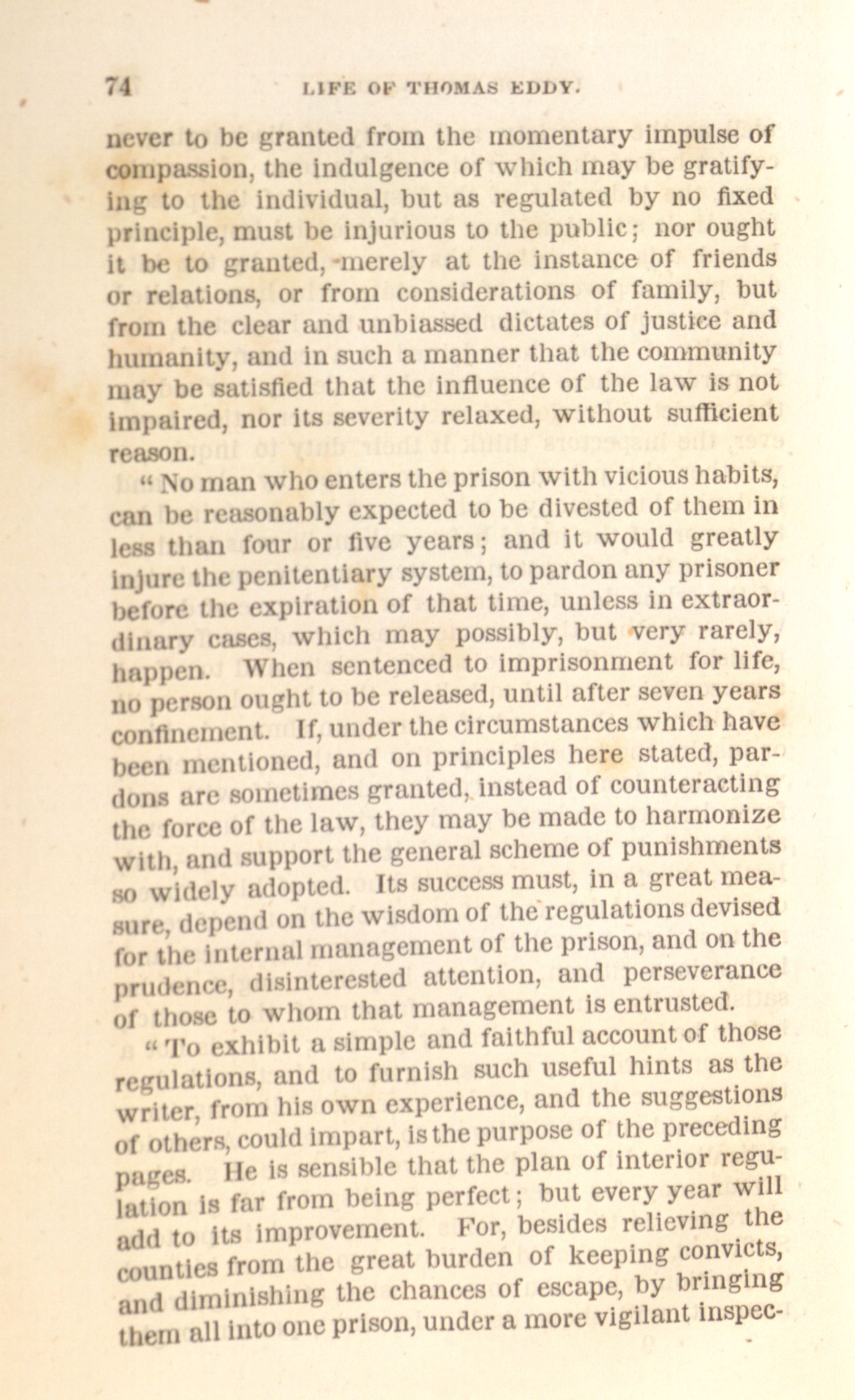compassion, the indulgence of which may be gratify-
ing to the individual, but as regulated by no fixed
principle, must be injurious to the public; nor ought
it be to granted, merely at the instance of friends
or relations, or from considerations of family, but
from the clear and unbiassed dictates of justice and
humanity, and in such a manner that the community
may be satisfied that the influence of the law is not
impaired, nor its severity relaxed, without sufficient
reason.
No man who enters the prison with vicious habits,
can be reasonably
expected to be divested of them in
less than four or five years;
and it would greatly
injure the penitentiary system, to pardon any
prisoner
before the expiration of that time, unless in
extraor-
dinary cases, which may possibly, but very rarely,
happen. When sentenced to imprisonment for life,
no person ought to
be released, until after seven years
confinement. If, under the
circumstances which have
been mentioned, and on principles here
stated, par-
dons are sometimes granted, instead of
counteracting
the force of the law, they may be made to
harmonize
with, and support the general scheme of punishments
so widely adopted. Its success must, in a great mea-
sure, depend on
the wisdom of the regulations devised
for the internal management
of the prison, and on the
prudence, disinterested attention, and
perseverance
of those to whom that management is entrusted.
To exhibit a simple and faithful account of those
regulations, and
to furnish such useful hints as the
writer from his own experience,
and the suggestions
of others, could impart, is the purpose of the
preceding
pages. He is sensible that the plan of interior
regu-
lation is far from being perfect; but every year will
add
to its improvement. For, besides relieving the
counties from the
great burden of keeping convicts,
and diminishing the chances of
escape, by bringing
them all into one prison, under a more vigilant
inspec-

